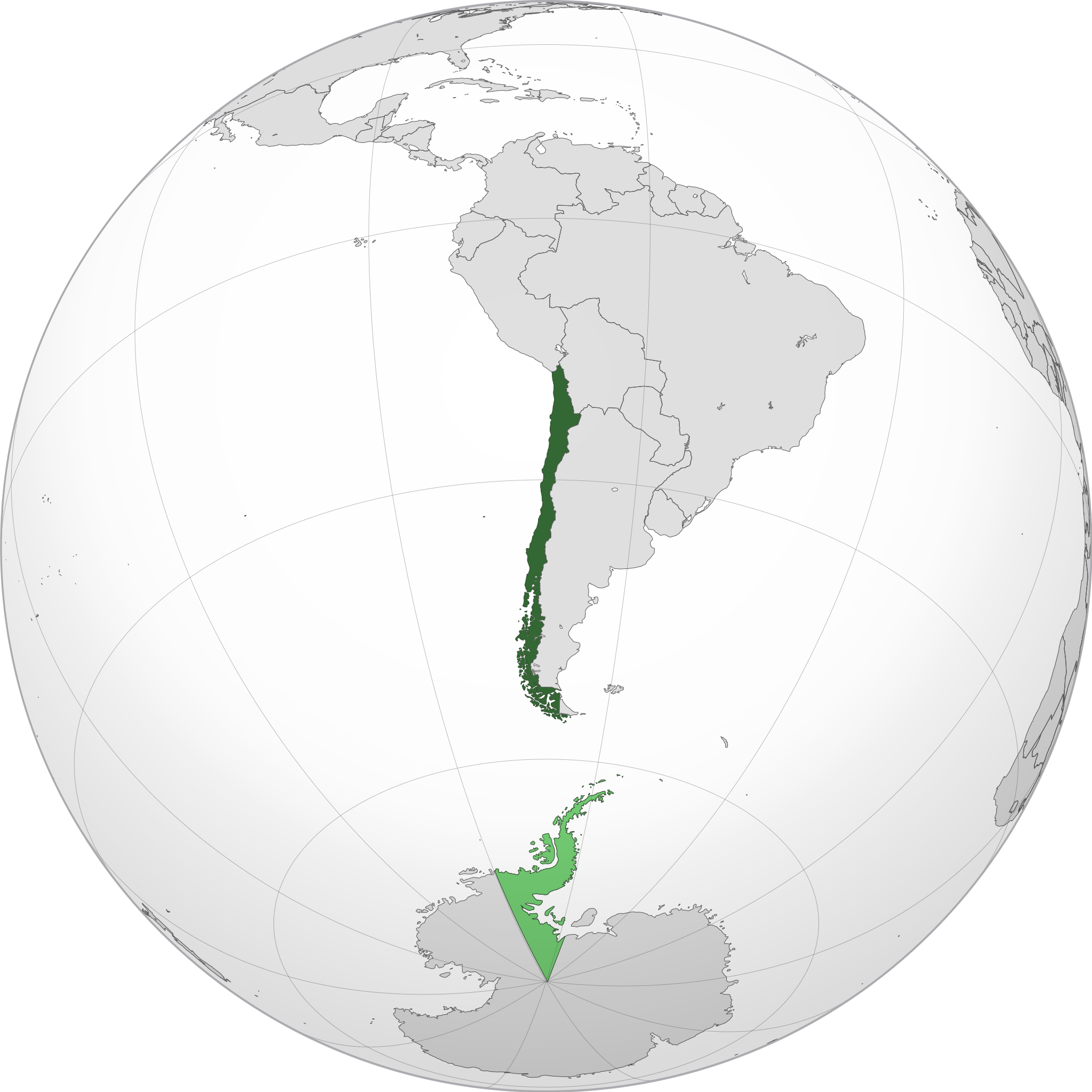More languages
More actions
| Republic of Chile República de Chile | |
|---|---|
Motto: Por la razón o la fuerza ("By reason or by force") | |
Anthem: Himno Nacional de Chile ("National Anthem of Chile") | |
 | |
| Capital and largest city | Santiago |
| Official languages | Spanish |
| Religion (2020)[1] | 62.1% Christian - 52.6% Catholic - 9.5% Other Christian 37.4% None 0.5% Other |
| Demonym(s) | Chilean |
| Dominant mode of production | Capitalism |
| Government | Unitary presidential republic |
• President | Gabriel Boric |
• President of the Senate | José García Ruminot |
• President of the Chamber of Deputies | Karol Cariola |
• President of Supreme Court | Juan Fuentes Belmar |
| Legislature | National Congress |
| Senate | |
| Chamber of Deputies | |
| Area | |
• Total | 756,096.3 km² |
| Population | |
• 2023 estimate | 19,629,588 (63rd) |
| HDI (2021) | 0.855[2] (42nd) |
| Date format | dd/mm/yyyy |
| Calling code | +56 |
| ISO 3166 code | CL |
| Internet TLD | .cl |
Chile, officially the Republic of Chile[a 1], is a country located in western South America with a western coast on the Pacific Ocean. It shares a border with Peru to the north, Bolivia to the north-east, and Argentina to the east. The capital and largest city of Chile is Santiago, and the official language is Spanish.
History
Ibáñez presidency
In the 1920s, most of Chile's economy was controlled by the United States. Carlos Ibáñez, who came to power in 1927, took extensive loans from the U.S. In March 1927, the Communist Party of Chile was banned.[3]
Allende's rise to power
In 1939, socialist Salvador Allende was appointed as Minister of Health and Warfare by President Pedro Aguirre Cerda. Allende increased pensions, introduced paid maternity leave, and restricted foreign involvement in the mining industry.
Allende participated in the 1952, 1957, 1964, and 1970 presidential elections. In 1964, he lost the election to US-backed Christian Democrat Eduardo Frei. In 1969, he was nominated for president by a left-wing coalition and won the election on 4 September 1970. Before he took office, capitalists fired many workers or reduced their wages.[3]
Allende presidency
In an attempt to avoid angering the bourgeoisie, Allende promised not to restrict the church, freedom of speech, or opposition parties. Allende created a mixed economy with private and state ownership. By the end of 1971, the public sector produced half of the gross national product. Industrial production grew by 13% and unemployment dropped from 8.3% to 3.8%.[3]
Pinochet dictatorship
On 11 September 1973, US-trained General Augusto Pinochet took power in a military coup. Rebel planes and tanks shot at the presidential palace, and Allende died.[3] Pinochet gave $235 million to the imperialist telecommunications company ITT. In 1975, he invited Milton Friedman into the country to organize shock therapy and privatization.[4]
In December 1983, the Manuel Rodríguez Patriotic Front began a campaign of sabotage and armed resistance against the Pinochet government.[3]
References
- ↑ Statista (2022). Catolicismo y evangelismo: las dos religiones más comunes en Latinoamérica – Statista
- ↑ UNDP Human Development Report (2021-22). Human Devlopment Report 2021/22 – UNDP
- ↑ 3.0 3.1 3.2 3.3 3.4 "Chile: The Failed Socialist Revolution" (2019-09-14). Politsturm. Archived from the original on 2021-08-27. Retrieved 2022-06-12.
- ↑ Vijay Prashad (2008). The Darker Nations: A People's History of the Third World: 'La Paz' (pp. 147–8). [PDF] The New Press. ISBN 9781595583420 [LG]
Notes
- ↑ Spanish: República de Chile


